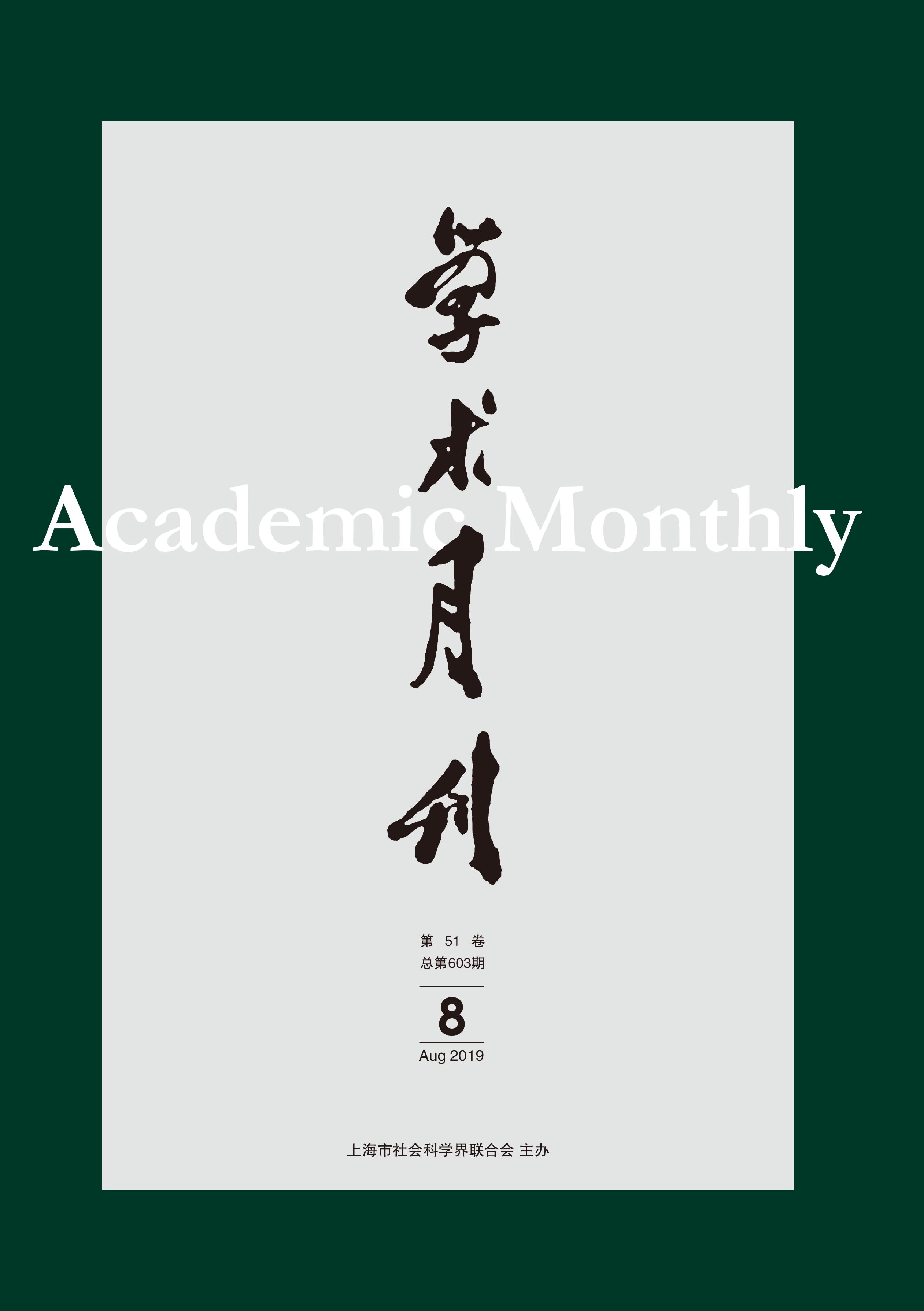Citation:
Wei WANG, Yufei LIU and Yan XU. Two Interpretation Orientations of the Debate on the Small and the Big in Zhuangzi and their Effective Ranges[J]. Academic Monthly, 2019, (8): 13-26.

Two Interpretation Orientations of the Debate on the Small and the Big in Zhuangzi and their Effective Ranges
-
Department of Philosophy&Institute of Modern Chinese Thoughts and Culture, East China Normal University, Shanghai, 200241
-
Abstract
The debate on the small and the big is an important topic of " Wandering in Absolute Freedom” (" 逍遥游”) in the Book of Zhuangzi. The interpretation of it has formed two basic orientations: one is that the big is more important than the small and the other is that the small and the big are equal on the road to freedom. Modern researchers regard this as the manifestation of conflicts, and the solution is often to choose one of them. However, this solution has made the fallacy of misplaced concreteness. A reasonable solution is to determine the respective effective boundaries of the two orientations. As far as our research is concerned, the rationality of the former interpretation orientation is only effective when it points to the mind, that is, the horizon and pattern of existentialism while the latter interpretation orientation is meaningful only within the scope of nature. Although the nature of each thing is qualitatively different, it can reach its own destiny in its own way respectively and it is equal to every being, whether it is the big one or the small one.Therefore, the essence of the second interpretation orientation is to fully realize one’s own nature and move toward freedom. This must be based on the expansion of the existential horizon. The former interpretation orientation is directed to maximizing the expansion of the existential field of view.The two interpretation orientations constitute two different stages of the subject’s course towards freedom—from expanding the existential horizon to realizing all beings’ own nature respectively.When everything works according to its own nature, this is what Zhuangzi calls " tiandizhizheng”(天地之正).
-

-
References
-
Access
-
-
[1]
Ying XIAO
. On the Aesthetic Meanings of the Dream of Red Massions. Academic Monthly,
2020, 52(9): 131-139.
-
[2]
TIAN Guoqiang
. Comparison of Moral Philosophies between Smith and Kant. Academic Monthly,
2023, 55(5): 36-44.
-
[3]
Zhibiao LIU
. Determinants and Policy Options of the Establishment of Large Unified Domestic Market. Academic Monthly,
2021, 53(9): 49-56, 84.
-
[4]
Yuanbao GAO
. A Brief History of Studies on Image Pedigree of Figures in Lu Xun’s Essays: A Continuous Answering to “Qu Qiubai’s Question”. Academic Monthly,
2022, 54(3): 162-171.
-
[5]
Fang WANG
. A Little Dilemma: The Parenting Dilemma of Subjectivity in Latensive Parenting Era. Academic Monthly,
2021, 53(11): 168-176.
-
[6]
Zuhui HUANG
. Strategic Orientation and Five Key Points of “Relocation” Poverty Alleviation Strategy in the New Stage. Academic Monthly,
2020, 52(9): 48-53.
-
[7]
Fuqiang ZHU
. How to Beware and Deal with Economic Crisis: Two Examinations of the Austrian School’s Policy. Academic Monthly,
2020, 52(1): 52-61.
-
[8]
,
,
. . Academic Monthly,
2017, 49(01): 5-10.
-
[9]
,
,
. . Academic Monthly,
2018, 50(01): 5-10.
-
[10]
ZOU Huan
. . Academic Monthly,
2018, 50(8): 140-148.
-
[11]
Weisheng XIAO
. On the Evolution Logic and Reflection of Chinese Mainland Cultural Research during the 70 Years of the P.R.China. Academic Monthly,
2019, 51(10): 121-131, 171.
-
[12]
Yongle ZHANG
. Concert of Powers and the Grand Compromise: The Network of Treaties, the Banking Consortium and the Path of the 1911 Revolution. Academic Monthly,
2018, 50(10): 91-109.
-
[13]
DING Weixiang
. “Promoting Virtue” and “Following Knowledge”: The Historical Influence and Significance of the Debate between Zhu Xi and Lu Xiangshan. Academic Monthly,
2023, 55(7): 14-22.
-
[14]
. . Academic Monthly,
2016, 48(04): 114-124.
-
[15]
FENG Yuan
. The Multiple Connotations of Mr.No Problem—— On the Debate of Emotion and Reason in Anti-Japanese Literature. Academic Monthly,
2024, 56(2): 166-174.
-
[16]
. . Academic Monthly,
2017, 49(06): 155-163.
-
[17]
. . Academic Monthly,
2016, 48(03): 5-12.
-
[18]
Liwen ZHANG
. On the Same Source of Fundamental Structure and Practical Use. Academic Monthly,
2020, 52(4): 5-22, 34.
-
[19]
Zebo YANG
. Responding to “the Question of Qian Mu”. Academic Monthly,
2019, 51(7): 13-21.
-
[20]
. The Stigmatization of Taoism and its Destigmatizing Process in Modern China. Academic Monthly,
2018, 50(04): 142-162.
-
-



 沪公网安备 31010102003103号
沪公网安备 31010102003103号 DownLoad:
DownLoad: